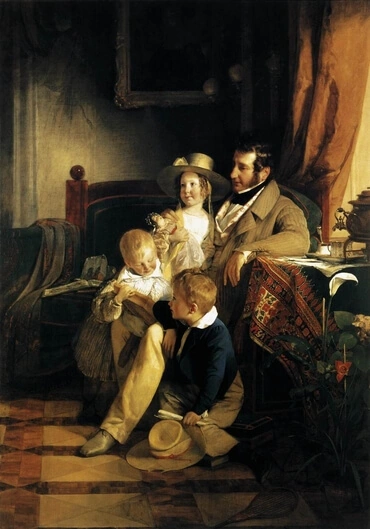Father

Father in the Word means what is most interior, and in those things that are following the Lord's order, it means what is good. In the highest sense Father means the Lord Himself, the creator. In the generation of natural children it is the father who provides the soul or the most interior receptacle of life, and an internal heredity, and the mother who provides all of the substance that the soul uses to form its body, plus an external heredity. In this process the soul comes from the Lord through the father, and not from the father, since all life is from the Lord. The wise person calls the Lord his father and the church his mother because his interior loves come from the Lord, but are given form and actuality through the truths taught by the church. Those things thus brought forth are a person's spiritual "children". In the New Testament, when speaking of Jesus and the Father, what is meant is the outward manifestation with the divine itself as the soul inside. Because Jesus was born from a natural mother, He had a natural body and a natural Jewish heredity. Throughout his life as He was tempted by the hells, He slowly put off all he had from His mother and replaced it with what He had from Himself inside, the Father. In doing this he made himself one with the Father that was His inmost so He could truly say, "I and my Father are one".
Arcana Coelestia #6905
6905. 'And let us sacrifice to Jehovah our God' means thus the worship of the Lord. This is clear from the meaning of 'sacrificing' as worship in general, dealt with in 923, for in the Hebrew Church and subsequently among the descendants of Jacob all worship was linked to sacrifices. This may be recognized from the fact that sacrifices were offered daily, and many at every feast. They were also offered when people were to be admitted into priestly functions or were to undergo purification; and there were sin-offerings and guilt-offerings, as well as those made as a consequence of vows, and those that were free-will offerings. All this goes to prove that worship in general is meant by 'sacrifices'. As regards its being the worship of the Lord that is meant by 'sacrificing to Jehovah God', this is plainly evident from the consideration that the sacrifices did not represent anything other than the Lord and the Divine celestial and spiritual realities that derive from Him, 1827, 2180, 2805, 2807, 2830, 3519, and also from the consideration that in the Word none other than the Lord is meant by 'Jehovah God', see above in 6903. 'Jehovah' is used to mean His Divine Being, and 'God' to mean His Divine Coming-into-Being from that Divine Being, so that 'Jehovah' is used to mean the Divine Good of His Divine Love, and 'God' to mean the Divine Truth emanating from His Divine Good.






